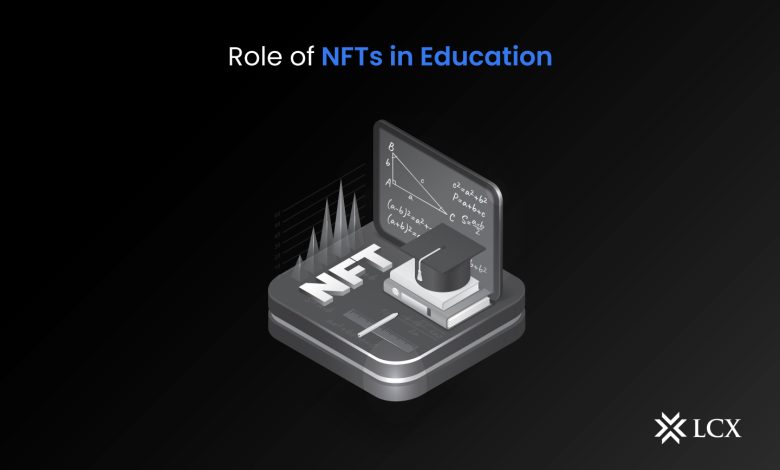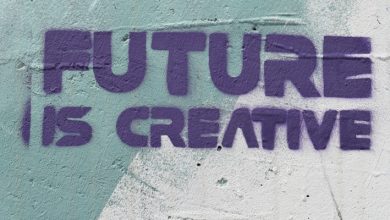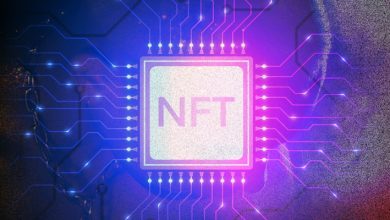NFTs in Education: Tokenized Certificates and Courses

- Understanding NFTs and their potential impact on education
- Exploring the concept of tokenized certificates in the academic world
- The rise of NFTs in revolutionizing traditional education systems
- How blockchain technology is reshaping the way we view educational credentials
- Tokenizing courses: A new era of digital learning through NFTs
- Challenges and opportunities of integrating NFTs into the education sector
Understanding NFTs and their potential impact on education
NFTs, or non-fungible tokens, have been making waves in various industries, including education. These unique digital assets are revolutionizing the way certificates and courses are being issued and verified. By leveraging blockchain technology, NFTs provide a secure and tamper-proof way to authenticate the ownership and validity of educational credentials.
One of the key advantages of NFTs in education is their potential to combat fraud and misrepresentation. With traditional paper certificates, it is easy for individuals to forge or alter documents, leading to issues of credential fraud. By tokenizing certificates as NFTs, educational institutions can ensure that each credential is unique, verifiable, and cannot be duplicated.
Moreover, NFTs have the potential to increase the value of educational credentials by making them more transferable and tradable. Students can easily showcase their achievements by sharing their NFT certificates on digital platforms, creating new opportunities for networking and career advancement.
As the adoption of NFTs in education continues to grow, it is essential for educators and institutions to understand the implications and potential impact of this technology. By embracing NFTs, the education sector can enhance the credibility and accessibility of educational credentials, ultimately benefiting students and employers alike.
Exploring the concept of tokenized certificates in the academic world
Exploring the concept of tokenized certificates in the academic world opens up a realm of possibilities for educational institutions and students alike. By leveraging NFT technology, universities can issue unique digital certificates that are tamper-proof and easily verifiable. These tokenized certificates can contain a wealth of information, including the student’s name, the course completed, the date of completion, and even the instructor’s signature.
One of the key benefits of tokenized certificates is their immutability. Once a certificate is minted as an NFT, it cannot be altered or forged, providing a high level of security and authenticity. This can help combat issues such as certificate fraud and ensure that credentials are trusted and recognized globally.
Furthermore, tokenized certificates can also enhance the value of a student’s academic achievements. By attaching unique tokens to certificates, students can showcase their accomplishments in a digital format that is easy to share and display. This can be particularly beneficial in a digital-first world where online portfolios and credentials are becoming increasingly important.
The rise of NFTs in revolutionizing traditional education systems
NFTs are making waves in the education sector by revolutionizing traditional systems of certification and course delivery. These non-fungible tokens are transforming the way students receive recognition for their achievements and the way educational content is created and distributed.
One of the key benefits of NFTs in education is their ability to provide verifiable proof of completion and mastery of a subject. By tokenizing certificates and courses, students can securely store their credentials on the blockchain, ensuring their authenticity and preventing fraud.
Furthermore, NFTs allow for greater flexibility in course offerings, as educators can create and sell tokenized courses directly to students. This decentralized approach to education opens up new opportunities for individuals to access high-quality learning materials from anywhere in the world.
As the demand for online education continues to grow, NFTs offer a unique solution to the challenges faced by traditional educational institutions. By embracing this technology, schools and universities can stay ahead of the curve and provide students with innovative learning experiences that are both secure and accessible.
How blockchain technology is reshaping the way we view educational credentials
Blockchain technology is revolutionizing the way educational credentials are viewed and verified. By utilizing blockchain, educational institutions can issue NFTs (non-fungible tokens) to represent certificates and courses. These NFTs are unique digital assets that cannot be replicated, ensuring the authenticity and integrity of the credentials.
One of the key benefits of using blockchain technology for educational credentials is the increased security and transparency it provides. Each credential is stored on a decentralized ledger, making it tamper-proof and resistant to fraud. This not only protects the value of the credential but also gives employers confidence in its validity.
Furthermore, blockchain technology allows for instant verification of credentials, eliminating the need for time-consuming manual checks. Employers can easily verify the authenticity of a candidate’s credentials by accessing the blockchain, streamlining the hiring process and reducing the risk of hiring individuals with falsified credentials.
Overall, the adoption of blockchain technology in the education sector is reshaping the way we view and manage educational credentials. By tokenizing certificates and courses as NFTs, educational institutions are embracing a more secure, transparent, and efficient way of credentialing that benefits both students and employers alike.
Tokenizing courses: A new era of digital learning through NFTs
Tokenizing courses is revolutionizing the field of digital learning by leveraging Non-Fungible Tokens (NFTs) to provide a new era of educational opportunities. Through the use of blockchain technology, educational institutions can now tokenize certificates and courses, creating unique digital assets that are verifiable, secure, and immutable.
By tokenizing courses, students can have access to a wide range of educational resources in a digital format that is easily transferable and tradable. This opens up new possibilities for lifelong learning and skill development, as individuals can now own and showcase their educational achievements in a decentralized and transparent manner.
Furthermore, tokenized courses can also help combat issues of credential fraud and verification, as the authenticity of certificates and courses can be easily verified on the blockchain. This not only benefits students and employers but also enhances the overall credibility and reputation of educational institutions offering tokenized courses.
Challenges and opportunities of integrating NFTs into the education sector
Integrating NFTs into the education sector presents both challenges and opportunities for institutions looking to modernize their certification and course offerings. One of the main challenges is the need for educators to understand the technology behind NFTs and how they can be utilized in an educational setting. This requires training and resources to ensure that staff are equipped to implement NFTs effectively.
On the other hand, there are numerous opportunities for educational institutions to leverage NFTs to enhance the value of certificates and courses. By tokenizing certificates, schools can provide students with a secure and verifiable way to showcase their achievements. This can help combat issues of fraud and ensure that credentials are recognized and respected in the job market.
Additionally, NFTs can be used to create unique and interactive learning experiences for students. For example, schools can tokenize specific courses or modules, allowing students to collect and trade digital assets as they progress through their education. This gamification of learning can increase engagement and motivation among students, leading to better outcomes.



